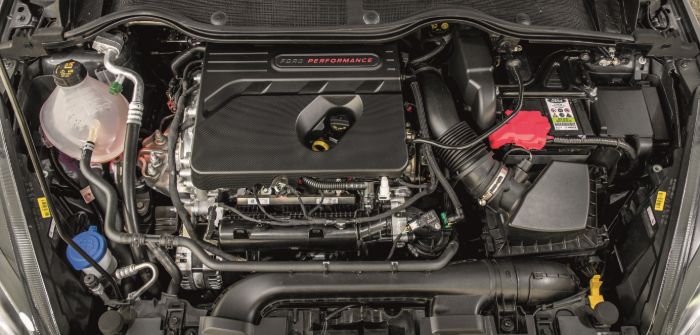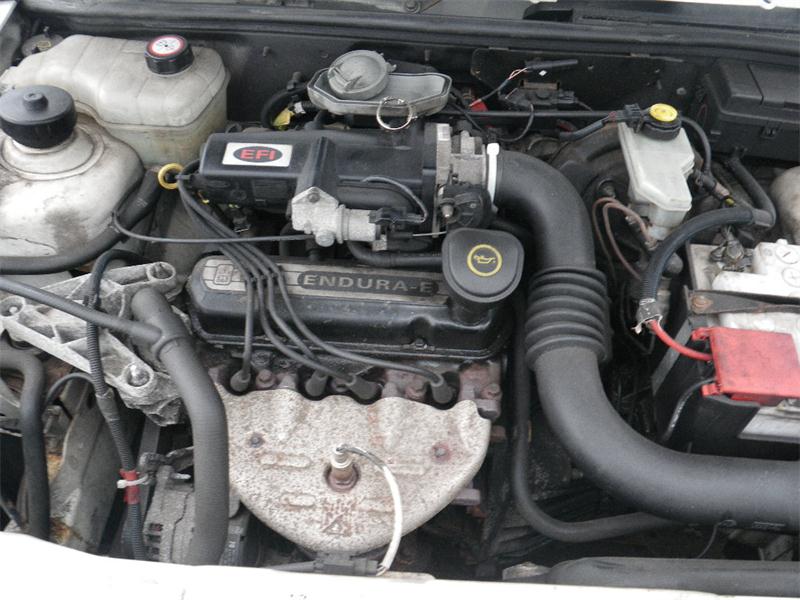Get the Most Out of Your Ford Fiesta Engine with Proper Care
Get the Most Out of Your Ford Fiesta Engine with Proper Care
Blog Article
The Future of Engines: Developments Driving Lasting Power Solutions
As the automobile market navigates the essential shift towards sustainability, the future of engines is progressively specified by groundbreaking technologies. Electric engine improvements, along with encouraging growths in hydrogen gas cells and biofuels, are reshaping the landscape of power services.
Electric Engine Advancement
The development of electrical engine developments represents an essential shift in the automobile and aerospace markets, driven by the urgent need for sustainable choices to nonrenewable fuel sources. This shift is defined by considerable developments in battery innovation, power electronics, and electric motor style, which collectively enhance the effectiveness and performance of electric engines.
Recent developments have caused the development of lighter, much more energy-dense batteries, such as lithium-silicon and solid-state batteries, which promise longer arrays and shorter charging times. Additionally, renovations in electric motor effectiveness, such as the usage of long-term magnets and advanced cooling down systems, allow electrical engines to run properly under differing conditions. These improvements not just enhance automobile performance yet likewise add to a decrease in overall power consumption.
Moreover, the combination of sophisticated software formulas has optimized energy monitoring in electric lorries, permitting regenerative stopping and predictive billing methods. As producers significantly embrace electrical propulsion, the automotive and aerospace industries are observing a standard shift in the direction of greener technologies. This evolution not only meets governing demands however additionally lines up with customer choices for ecologically pleasant transport services, strengthening electrical engines as a cornerstone of future lasting wheelchair.
Improvements in Biofuels
As the aerospace and vehicle sectors increasingly focus on lasting energy resources, innovations in biofuels emerge as a complementary remedy to electrical engines. Biofuels, originated from organic materials such as plants, waste, and algae, offer a cutting-edge method for minimizing greenhouse gas exhausts and dependence on nonrenewable fuel sources.
Recent research study has actually concentrated on enhancing the efficiency and sustainability of biofuel production. Second-generation biofuels utilize non-food feedstocks, minimizing competition with food supply and minimizing environmental effect. Furthermore, improvements in artificial biology have actually allowed the engineering of microbes to generate biofuels better, leading to higher returns and reduced manufacturing prices.
Furthermore, the advancement of drop-in biofuels permits smooth combination into existing infrastructure, enabling a smoother transition for industries typically dependent on fossil gas. ford fiesta engine. These gas can be utilized in present engines without adjustments, facilitating their fostering throughout numerous industries
Investments in biofuel technology, along with encouraging plans, are important to drive innovation and scalability. As the international area seeks to battle environment modification, biofuels offer a practical, instant service that lines up with the overarching goal of sustainability in transport and aviation.
Hydrogen Gas Cell Modern Technology
A growing number of firms and scientists are checking out hydrogen fuel cell innovation as a practical choice to standard power sources in transport and energy systems. This innovation converts chemical energy from hydrogen into power via an electrochemical response, with water as the only result, making it an ecologically pleasant option.
The core of hydrogen gas cells is the fuel cell pile, where hydrogen molecules are split right into protons and electrons. The circulation of electrons produces electricity, while protons move via a membrane to incorporate with oxygen from the air, developing water. This procedure results in high effectiveness and reduced emissions, placing hydrogen fuel cells as a crucial gamer in the change to sustainable power.
Significant improvements have actually been made in enhancing the sturdiness and efficiency of fuel cells, along with reducing expenses through ingenious production strategies. Furthermore, the development of hydrogen production techniques, such as electrolysis powered by renewable resource sources, boosts the sustainability of the general system. As infrastructure for hydrogen refueling expands and production techniques end up being a lot more reliable, hydrogen gas cell modern technology holds excellent assurance for decarbonizing numerous fields, consisting of heavy-duty transport and stationary power generation.
Hybrid Systems and Their Impact
Crossbreed systems stand for a substantial development in sustainable engine technology, merging typical interior combustion engines with electrical propulsion to maximize power effectiveness and reduce exhausts (ford fiesta engine). This double approach enables lorries to utilize both power sources, making it possible for better versatility in energy intake and minimizing reliance on fossil fuels

In addition to environmental advantages, hybrid systems supply customers a sensible shift towards fully electrical automobiles. They relieve variety stress and anxiety by integrating the benefit of gasoline with the benefits of electric propulsion, making them an attractive option for a wider audience. As producers invest in hybrid modern technology, the development of more innovative battery systems and light-weight materials continues to improve performance. In general, helpful site crossbreed systems stand for an essential step in the direction of achieving lasting transportation and addressing the urgent demand for eco-friendly power remedies.
The Function of AI in Engine Style
Leveraging sophisticated algorithms and artificial intelligence techniques, the auto market is significantly incorporating fabricated intelligence (AI) right into engine layout processes. AI enhances the effectiveness and efficiency of design by examining substantial datasets to recognize optimal arrangements and performance parameters. This ability enables designers to imitate numerous operating conditions and predict engine behavior under multiple situations, dramatically decreasing the time and expense connected with standard prototyping approaches.
Furthermore, AI helps with the development of advanced materials and burning procedures customized for sustainability. By maximizing gas effectiveness and lessening exhausts, AI-driven layouts straighten with international efforts intended at reducing the carbon footprint of auto engines. Artificial intelligence algorithms can likewise forecast upkeep requirements, resulting in improved integrity and long life of engine parts.
In Addition, AI is crucial in the assimilation of electrification innovations, such as hybrid systems, where it can maximize battery management and energy healing procedures. As the industry relocates towards more lasting power remedies, the function of AI in engine style ends up being increasingly essential, driving technology and boosting the efficiency of future engines. Eventually, the collaboration in between AI and engine style heralds a new age of smarter, cleaner, and more reliable automobile modern technologies.

Verdict
To conclude, the future of engines is being shaped by a merging of cutting-edge technologies that prioritize sustainability. Electric engine improvements, biofuel advancements, hydrogen gas cells, and crossbreed systems jointly contribute to a significant reduction in emissions and environmental effect. Furthermore, the combination of expert system in engine find out design enhances efficiency and efficiency. These transformative solutions highlight a commitment to creating a cleaner, more sustainable automobile landscape, ultimately benefiting both culture and the setting.
Electric engine improvements, together with promising developments in hydrogen gas cells and biofuels, are reshaping the landscape of power services. Additionally, renovations in electrical motor effectiveness, such as the use of permanent magnets and progressed cooling down systems, enable electrical engines to run efficiently under varying problems. By enhancing fuel performance and decreasing discharges, AI-driven styles align with global campaigns aimed at lowering the carbon impact of auto engines. As the sector relocates in the direction of more sustainable power solutions, the role of AI in engine design comes to be significantly vital, driving advancement and improving the performance of future engines. Electric engine advancements, biofuel advancements, hydrogen gas cells, and crossbreed systems collectively contribute to a substantial reduction in discharges and ecological impact.
Report this page